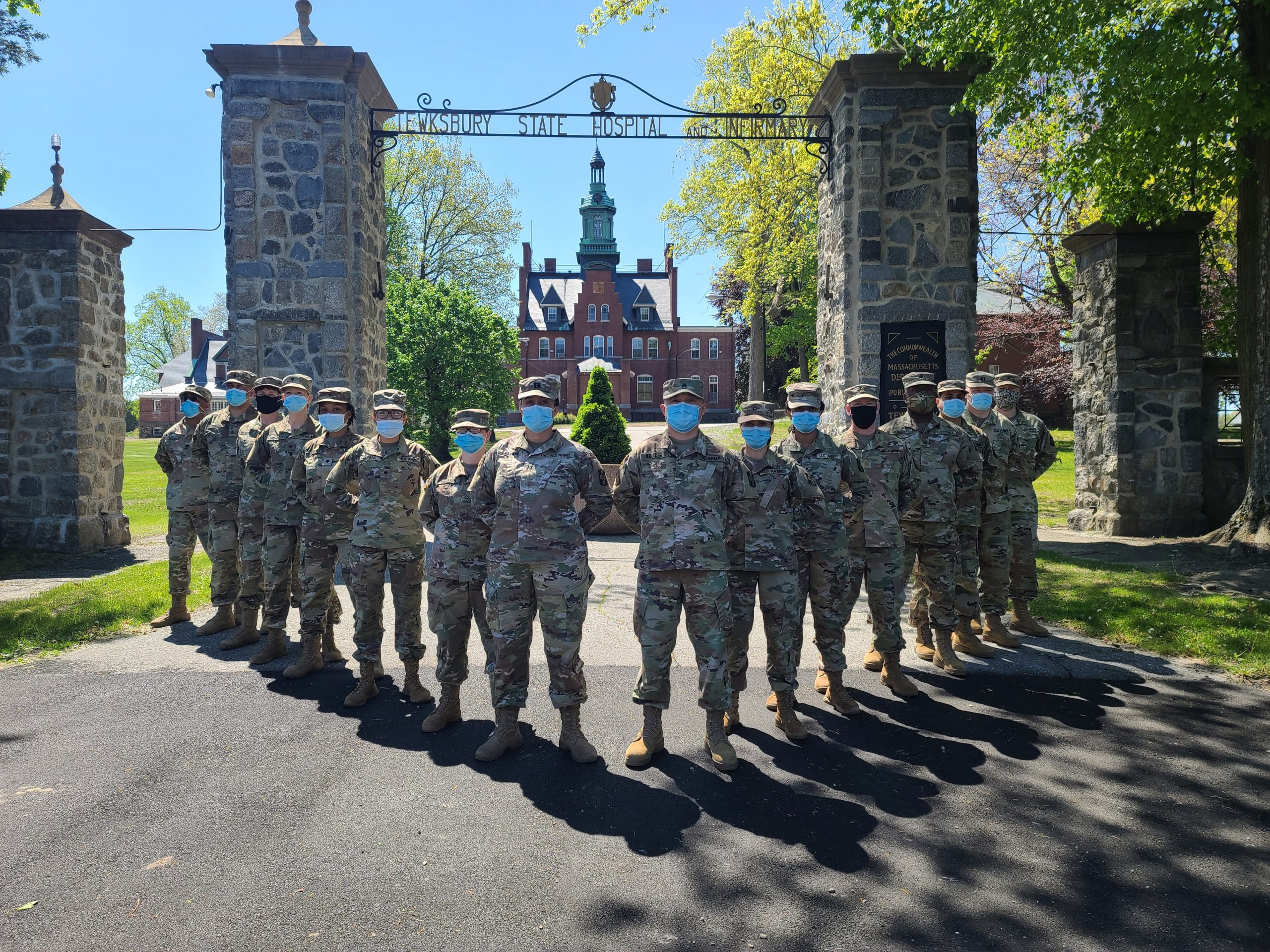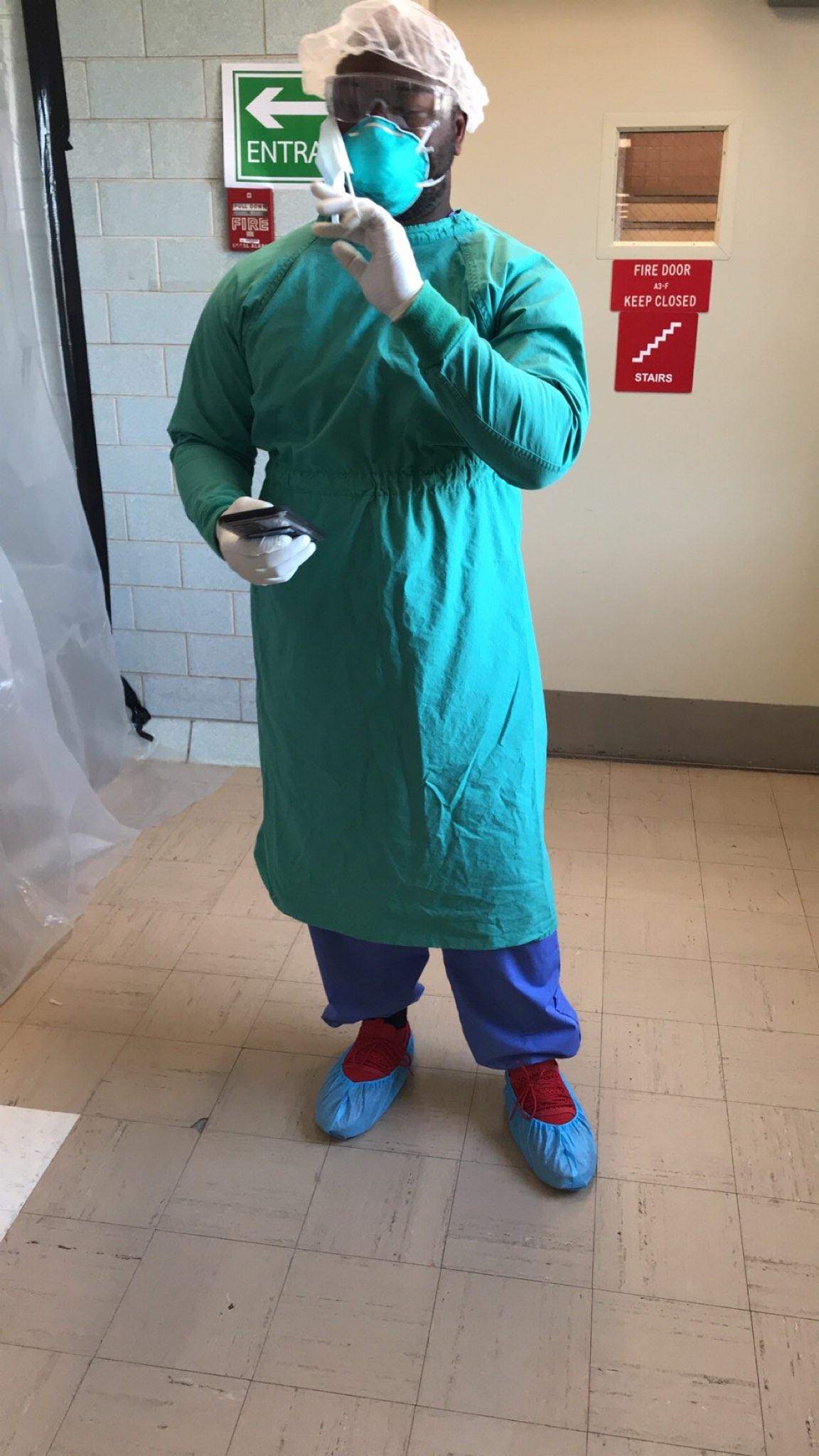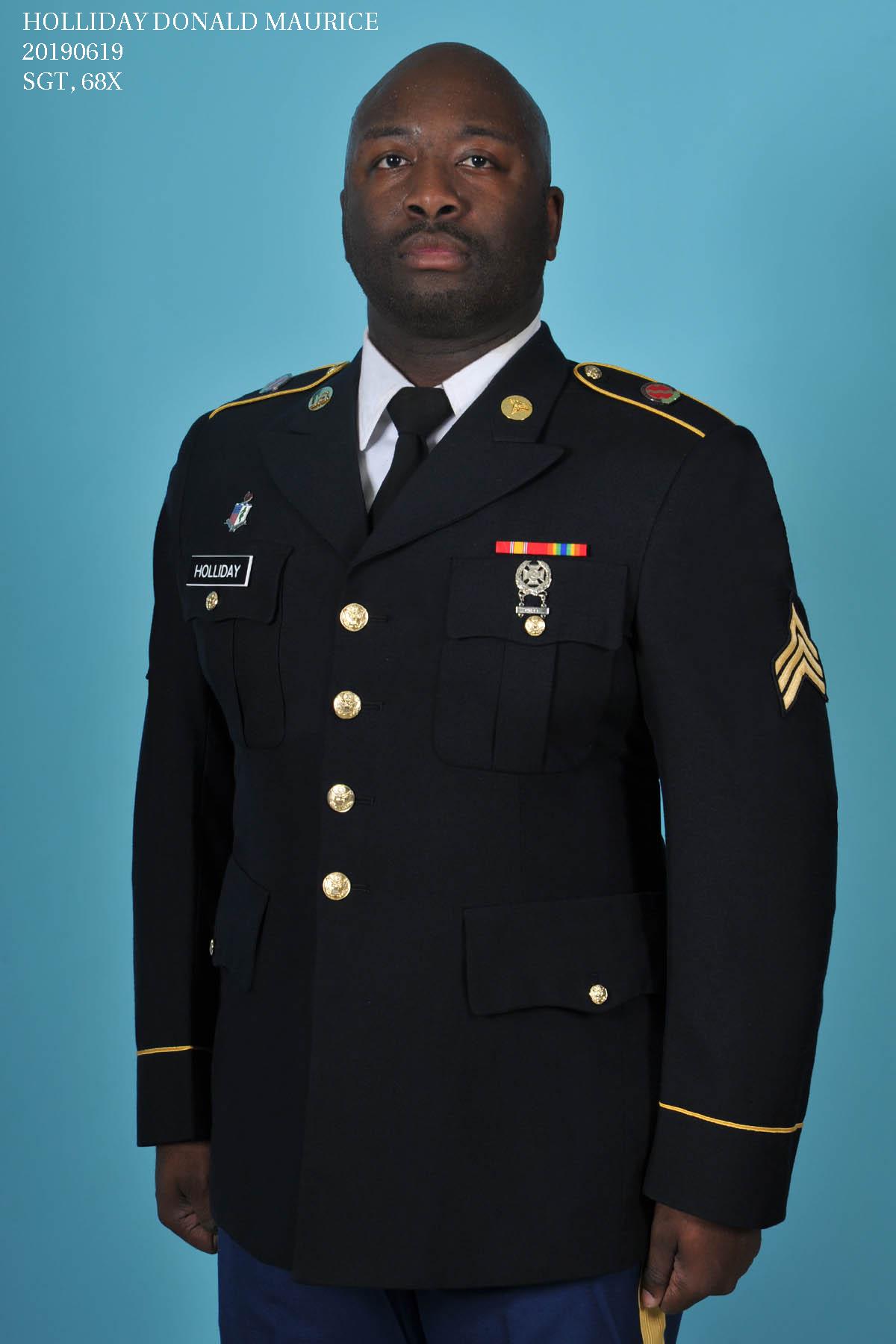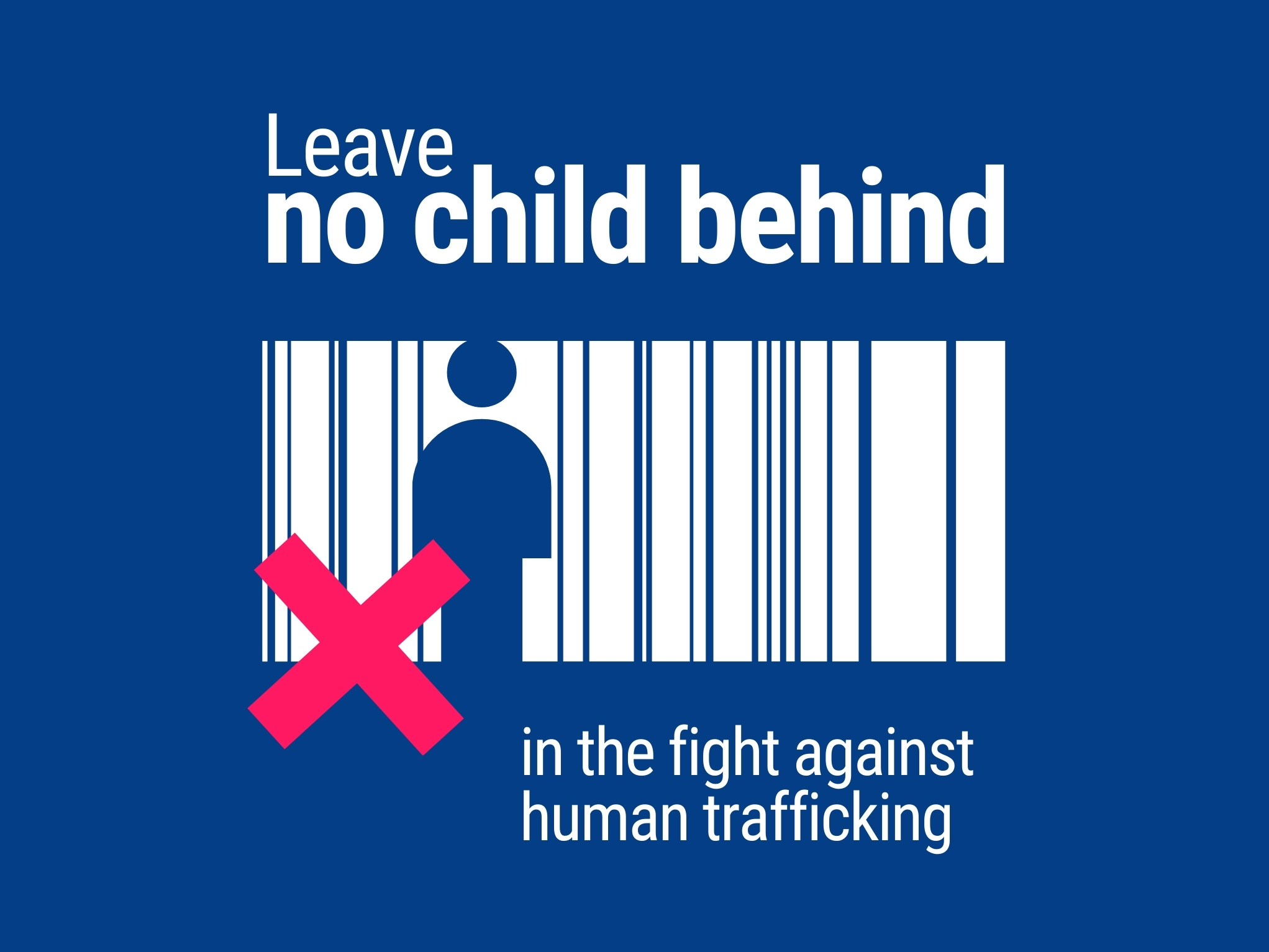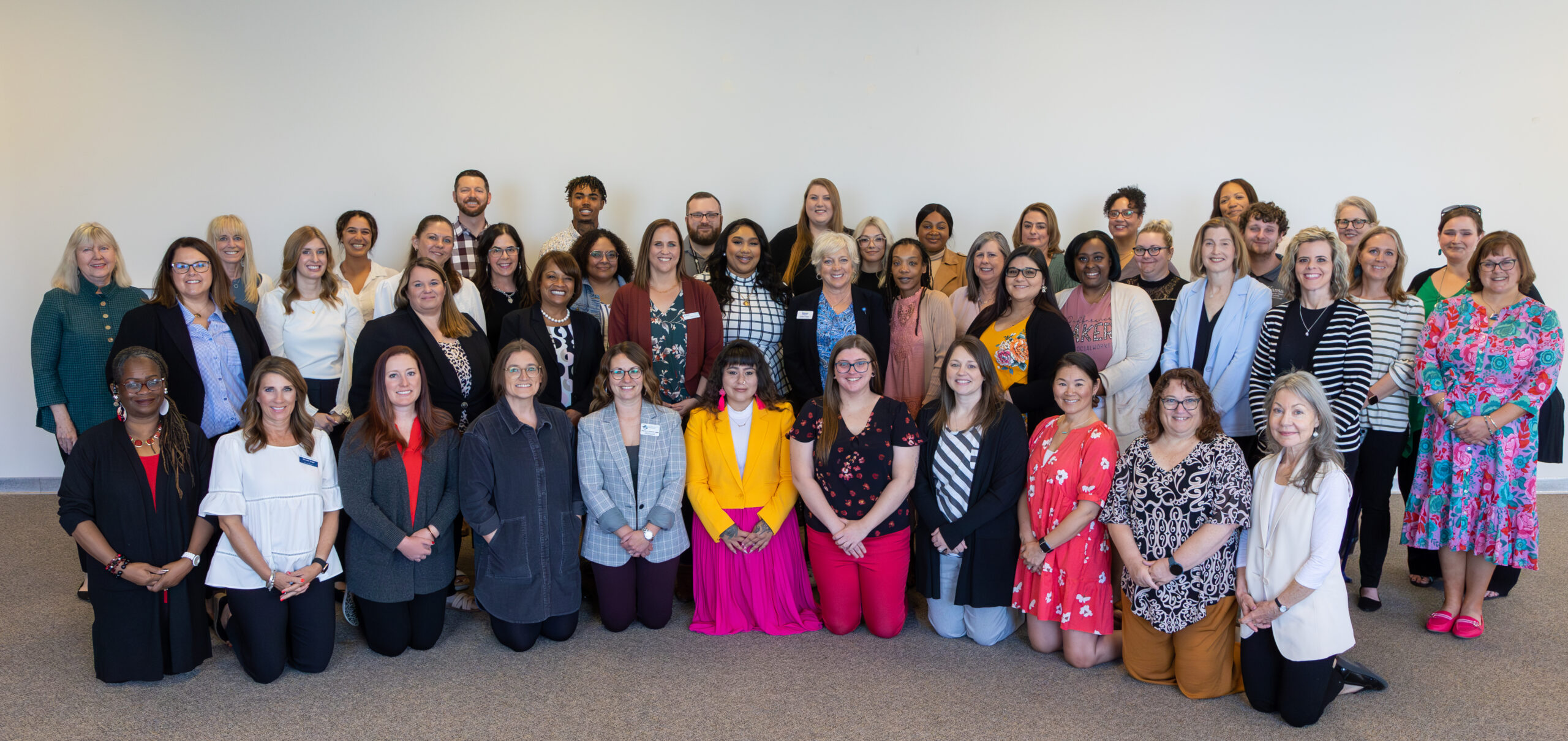Around this time last year, COVID-19 was mostly an ominous-sounding word hinting at a danger that the world was just beginning to discover.
As the numbers climbed, healthcare workers watched anxiously and prepared, while scientists scrambled to learn more about this disease. In March 2020, none of us were sure what the virus was capable of. Into this risky and uncertain situation moved the 1908th Medical Detachment of the U.S. Army Reserve, based at Topeka, Kansas. Mobilized as part of the Urban Augmented Medical Task Force, they spent nearly four months in Texas, New York, New Jersey, Puerto Rico, New Hampshire, and Massachusetts providing behavioral mental health support to civilian patients and front-line healthcare workers in local hospitals. One of those soldiers was Sgt. Donald Holliday, a behavioral health social worker and an employee of Saint Francis Ministries.
“We helped hospital staff set up restricted areas and cover their shifts, since many of them were positive cases themselves,” Holliday said.
“We were able to go in and assist in properly setting up and disposing of PPE (personal protection equipment) to help restrict the spread of virus. More specifically, I was able to support the patients and civilian staff of the hospital with behavioral health needs, keeping in contact with their families about what was going on because of quarantines and restrictions. I helped provide for the mental needs for patients, staff and our own team members.”
Holliday and the rest of his unit put in many long days, but he did his part while simultaneously maintaining his Saint Francis caseload. Throughout the deployment, he continued to provide care for his clients. He didn’t have to. As a reservist on deployment, he was not obligated to also keep up with his “day job.” Yet, to do otherwise was unthinkable.
“As a former athlete, I’m competitive, so I wanted to make sure that my job and responsibilities at Saint Francis wouldn’t be lacking as a result of my military responsibilities,” he said. “It wouldn’t be fair to the families I serve or to my co-workers. Fortunately, I had great support from my supervisor and co-workers. The courts also helped by allowing me to appear by Zoom. It was tricky sometimes, considering the time changes, but I was happy to be afforded the opportunity to serve my time with the military and not have my job with Saint Francis negatively affected.”
The desire to serve comes naturally to Holliday. Even as a middle school student, he often gave away his last $5 to homeless people on the streets of Kansas City, Kansas. So, he knew when he left for Butler Community College on a football and vocal music scholarship, he wanted a career in which he could help others. An encounter with cognitive development in a psychology course eventually led him to see social work and behavioral health as career path for serving the most vulnerable. He earned his master’s in social work from Catholic University of America and later worked at the Kansas Department for Children and Families before joining Saint Francis, where he works in the Junction City office as a licensed permanency specialist.
“I work in Independent Living in the West Region,” Holliday said. “My clients are 16 to 21 years old and normally still in foster care. The court has deemed that adoption or reintegration are no longer viable options for them, so I assist them with getting prepared to live on their own because at 18, they have the option of being released from the court. I help them develop a plan so they can get a roof over their head and gain stability, get their high school diploma or GED. It’s challenging; there’s no cookie cutter approach to this. I just try to put myself in their shoes and keep them safe, keep them engaged and let them be their own advocates because at the end of the day, it’s their life.”
He’s grateful that he has been able to apply his behavioral health education and skills to his military career as well. Both his work with Saint Francis and in the Army support his urge to serve.
“I’m doing something bigger than myself,” he said. “I like that I’m not the focal point, and what I do in the Army and at Saint Francis go hand in hand.”
They’re both service; they’re both giving to other people. So, for me, that’s fulfilling.”
Holliday’s chief satisfaction, however, lies in seeing his clients succeed.
“The young people I serve are not just a number or a court case. They’re human beings. Some come from rough backgrounds, they have trauma and they’ve been through a lot. Sometimes, they act out. But there are reasons behind those surface behaviors. They are just as intelligent, just as worthy, just as hopeful … and they have just as much potential as anyone else. I love my job. It’s very rewarding, especially when you successfully discharge a youth, when you watch them get their diploma, when their services are in place, and I know I’ve done everything I could to help prepare them for adulthood.
“Human relationships are so important. That’s one thing we’ve seen with this coronavirus pandemic by not being able to have that human interaction – the hug, the handshake, the physical embrace. We need each other. As humans, we need each other.”
For exceptionally meritorious service while assigned to task force, Silver Dragon, Sgt. Holliday was awarded the Air Force Brigade General Challenge Coin. This is awarded to soldiers who are recognized for exceptional service beyond their assigned orders and duties. He was also awarded the United State Army Certificate of Achievement Award, a United States Army Accommodation Medal, the State of Massachusetts Emergency Service Ribbon, and the State of Massachusetts Humanitarian Award.
To read the full version of our Spring 2021 HiLites, click here.
Sign up to receive our quarterly electronic magazine!
